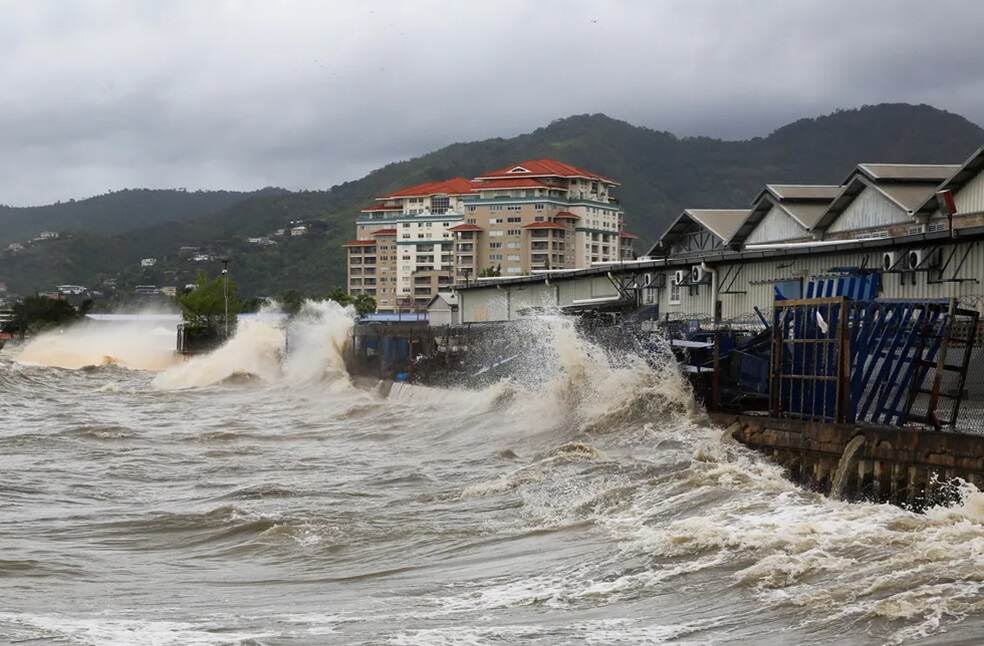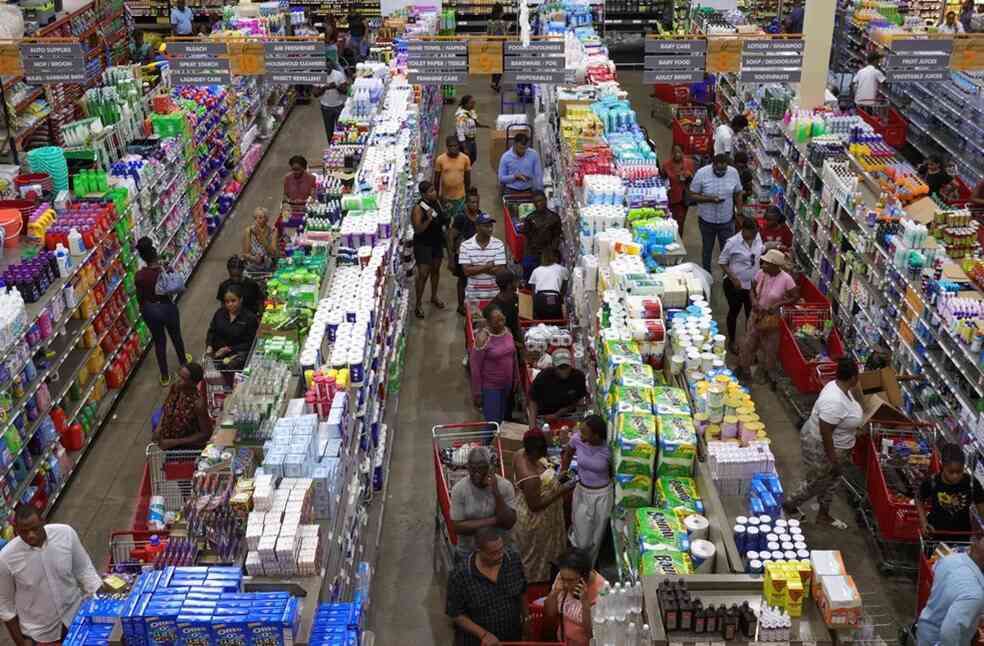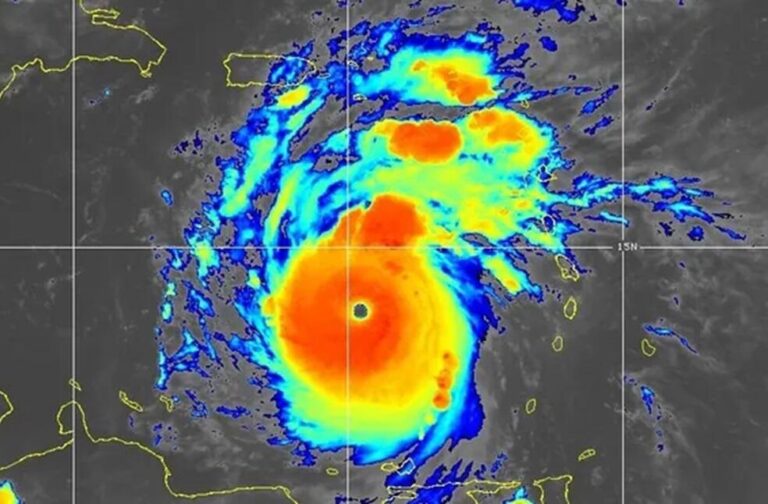JAMAICA: Hurricane Beryl, now a powerful Category 5 storm, is bearing down on Jamaica’s coastline after a trail of destruction across several Caribbean islands.
With sustained winds reaching 165 mph, Beryl has ravaged homes in Grenada and St. Vincent and the Grenadines, where many residents live without essential services. The storm is forecast to intensify further and is expected to bring life-threatening winds and storm surge to Jamaica by Wednesday afternoon.

This exceptionally early hurricane season has seen Beryl set new records, becoming the earliest Category 5 hurricane on record in the Atlantic and only the second storm of such intensity recorded in July.
Grenada Prime Minister Dickon Mitchell described the devastation caused by Beryl in Carriacou as, ‘In half an hour, Carriacou was flattened,’ with widespread power and communication outages affecting the entire island.
In neighbouring St. Vincent and the Grenadines, Prime Minister Ralph Gonsalves reported significant damage, including one confirmed fatality. Hundreds of homes and critical infrastructure such as hospitals have been severely affected, underscoring the storm’s destructive impact.

As Beryl continues its path through the Caribbean, it is expected to maintain its strength as an ‘extremely dangerous major hurricane,’ with a pack of strong winds, heavy rainfall, and hazardous seas.
Jamaica has issued a hurricane warning, prompting the activation of national disaster response protocols. Authorities warn of potential storm surge up to 5 feet above normal levels and heavy rainfall up to 12 inches, which could trigger flash flooding.

Meanwhile, Grenada has extended its state of emergency due to extensive power outages and infrastructure damage caused by Beryl. Telecommunications remain disrupted across much of the island.
The storm’s rapid intensification and early formation are alarming signs in a climate change-affected world, highlighting the warming ocean conditions that fuel hurricanes like Beryl.



